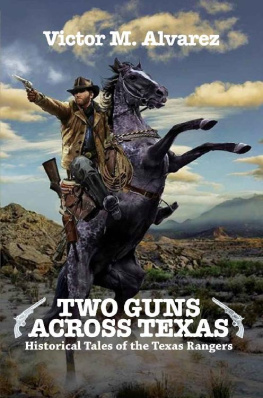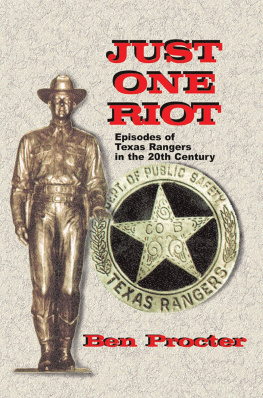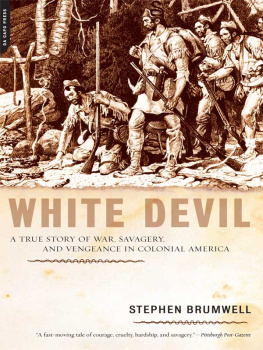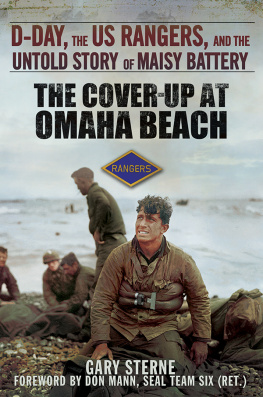Table of Contents
Biographical Sketch
D. W. Roberts was born in the State of Mississippi, in Winston County, October 10th, 1841. His father, Alexander Roberts, came to Texas in 1836, and helped the Texans fight the battles of the Republic for nearly four years, being in many engagements with the enemy, the most noted of which was the Plum Creek fight, which has gone into the history of Texas.
Soon after the Plum Creek fight, my mother prevailed on father to take his family to some place of safety, firmly believing that wholesale murder would be their fate: (Father's judgment was waived) and her love of family won her cause, and they went back to Mississippi in 1839.
During their stay in Mississippi, I was born, making that State my native soil, but father's love for Texas had never subsided, and his turn came to persuade mother back to Texas, where he joined his old comrades again in 1843. I was about two years old when they returned to Texas.
My father followed up the frontier, and I was reared, and almost rocked in the cradle of Texas warfare. When I was a small boy, I developed some very peculiar traits of character, not peculiarly good, but rather strangely peculiar.
We were fond of dwelling alone, to commune with Nature's beautiful work. I had my favorite pecan trees, and would conceal myself under them, to hear the crows murmur to each other, while they were gathering the splendid nuts.
My father's recital of early Texas battles had imbued me with the spirit, that those old Texans were the rightful lords of that grand and new republic, and that their heroism should be sustained, and when I grew to be a man, that I would devote my life to the cause that my father so loved.
In my boyish dreams I was always in command of men. My education was limited to the common English branches. As I grew to manhood, I could see that war should not be our occupation, but the constant raids of savage foes upon Texas, gave us the field that our more youthful days had pictured for us. We were "put in command of men," and our stewardship will follow. Our work was more preparatory for civil government, consequently we were never a politician, but always adhered to democratic principles.
Introduction
We set out in this writing to record the work of Company ''D", Frontier Battalion, not for any selfish consideration. But, being almost importuned by our real friends to do so, we thought we could tell what we really know to be true in a way that might spin out a thread strong enough to bind together an intelligent idea of the needs of that service, how the service was performed, and at least a vision of the final disposition of the horrid Indian question. Our egotism doesn't lead us to say that Texas did it all; but our little part is richly treasured in the archives of our "native heath"Texas. Our sorrows are there, also, in many a grave not even marked by human hands to show where our brave defenders met death yielding the last sacrifice in defense of Texas.
We challenge the world to produce a citizenship or soldiery more loyal to home and country. Our oldest citizenship were ''diamonds in the rough" and no polish has ever added to their intrinsic value. The great big warm hearts of their sons and daughters needed no psychologist to interpret their spirit growth. They were modestly, and innocently, great from birth. When "patent-leather civilization" overtook them they were ill at ease to embrace its gilded charms; but reassurance came to them in a knowledge that good society came from a good base.
We shall abstain from politics, religion or law, only to give a definition of politics, offered by a statesman, who said: "Politics is anything pertaining to law." But from this we dissent, and offer a substitute: "Politics is anything for the betterment of our institutions of government.'' Religion is the outgrowth of moral ethics, but Christianity is a different thing. Law is the executive branch of both politics and Christianity, it rather seeks shelter under Christ's precedents. Some may say that these great questions have no analogy to the subject; but a great state, trying to operate a government under their power, must have a cause and justification.
We had to meet a condition, not a law, of savage atrocity. We could not apply our law in revenge, which made our case clearly one in self defense. The State of Texas realizing this could only operate a force within state lines. The Rangers were her militia, as the name "Ranger" had no standing in law. It came to us more from tradition, when Texas was a republic, and is dear to us yet. The moral force of its meaning will never die in Texas.
Texas found that the practical acquisition of her frontier furnished an asset to the state, which vastly augmented her wealth. The live-stock industry easily copes with cotton, sugar and rice, on a basis of money value. Her fruits and cereals only supply home consumption. Her truck gardening is a big item in supplying all our early markets. And can we claim a modest little part in bringing about all this? We abide the answer from true Texans.
Organization
After the war between the states, the first Democratic Governor elected in Texas was Richard Coke. The citizens of Texas, realizing that the state was over-run with Indians and outlaws, following in the wake of war, found that the battles of its first great pioneers would have to be, in a measure, fought over again. Not for the independence of a republic, but, for the life and liberty of her people, guaranteed by the constitution, and compact of states. Consequently, in May, 1874, Governor Coke recommended to the legislature, then in session, to authorize the raising and equipping of a battalion, of six full companies of Rangers, consisting of 75 men to each company, rank and file, to be placed on the Texas frontier, extending from Jacksboro, in Jack County, to the Rio Grande River, bordering on Mexico a distance of 600 miles, on the north and west of the interior of the state.
That legislature was composed of the sterling men of the state, who didn't weigh money, with the lives of our people, and after passing the bill appropriated $75,000.00 to put the Battalion into action as quickly as possible. The six companies of the Battalion were organized and officered as follows: On the extreme east of the line was Captain John Ikard. Then, coming west, was Captain Stevens, then Captain Jeff. Malty, then Captain C. R. (Rufe Perry) commanding Company D. Then came Captain Neal Caldwell and Captain Pat Dolan on the extreme west. The respective companies were distributed approximately 100 miles apart. Our Adjutant General was Wm. Steele; our Major was John B. Jones. Our Quartermaster was Wm. M. Kenney.
Major John B. Jones was the moving spirit of the field work and directed it almost entirely himself. Major Jones was a man of great administrative and executive ability, and none of the Rangers could beat him to a real live scrap with the enemy. He was the right man in the right place. Major Jones detailed five men from each company to serve as an escort with him in traveling from one company to another, up and down the line of companies. That he endured hardships and hard fighting will be mentioned later.
After we had been in the service about five months having had some fighting in the meantime, our Quartermaster informed Governor Coke that the appropriation, $75,000.00, would not maintain the six companies for two years, or until another legislature could make further appropriation, the deficit being about one-half of the needed sum. Consequently, Governor Coke ordered a reduction of the force to 40 men to each company, rank and file, which was done immediately.








